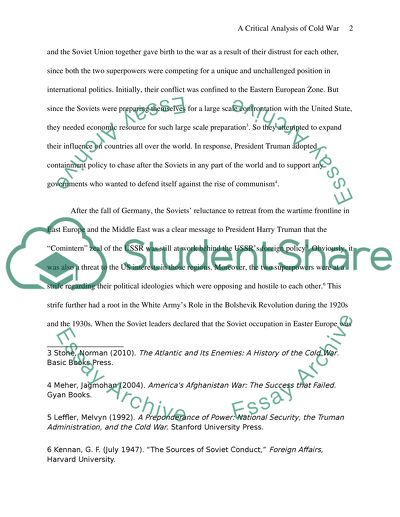Cite this document
(“: How did the cold war tensions between the United States and Soviet Research Paper”, n.d.)
Retrieved from https://studentshare.org/history/1640520-how-did-the-cold-war-tensions-between-the-united-states-and-soviet-union-grow-in-the-aftermath-of-the-second-world-war-and-how-did-it-affect-global-relations-with-the-third-world-developing-nations
Retrieved from https://studentshare.org/history/1640520-how-did-the-cold-war-tensions-between-the-united-states-and-soviet-union-grow-in-the-aftermath-of-the-second-world-war-and-how-did-it-affect-global-relations-with-the-third-world-developing-nations
(: How Did the Cold War Tensions Between the United States and Soviet Research Paper)
https://studentshare.org/history/1640520-how-did-the-cold-war-tensions-between-the-united-states-and-soviet-union-grow-in-the-aftermath-of-the-second-world-war-and-how-did-it-affect-global-relations-with-the-third-world-developing-nations.
https://studentshare.org/history/1640520-how-did-the-cold-war-tensions-between-the-united-states-and-soviet-union-grow-in-the-aftermath-of-the-second-world-war-and-how-did-it-affect-global-relations-with-the-third-world-developing-nations.
“: How Did the Cold War Tensions Between the United States and Soviet Research Paper”, n.d. https://studentshare.org/history/1640520-how-did-the-cold-war-tensions-between-the-united-states-and-soviet-union-grow-in-the-aftermath-of-the-second-world-war-and-how-did-it-affect-global-relations-with-the-third-world-developing-nations.


